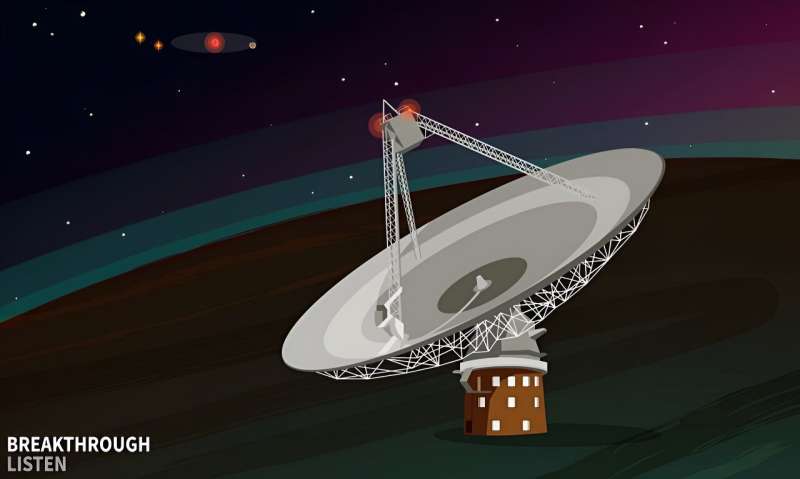This article has been reviewed according to Science X's editorial process and policies. Editors have highlighted the following attributes while ensuring the content's credibility:
fact-checked
trusted source
proofread
First contact could turn out well for humanity

You've heard this story before. An advanced alien race comes to Earth. They offer peace and prosperity, but they hold a dark secret. One that could destroy humanity. That dark secret has varied over the years, from stealing our water, books on culinary advice, or communism, but the result is always the same. First contact with advanced extraterrestrials goes very badly for us. But in reality, how bad could it be? That's the question a new study examines using game theory and Hobbesian philosophy.
The simple argument against alien contact comes from our own history. When European colonizers made contact with the nations of the Americas, the results were genocide and the destruction of American civilizations. So, the argument goes, if an advanced alien fleet comes to Earth, we should expect the worst.
However, Europeans came to the Americas with the specific intent of subjugation and exploitation, which might not be true of alien explorers. And while giant spaceships hovering over our major cities can make for good cinema, it's much more likely that the first contact with aliens will be by radio, with an exchange of information across light years. So we should probably take a more game-theoretic approach to first contact.
One way to approach the problem of first contact is through the Hobbesian Trap, also known as Schelling's dilemma. Suppose you get lost in the woods and meet a stranger. The best outcome is for the two of you to work together to find a way out of the woods. But you don't know this stranger. They might beat you unconscious and steal your stuff. So maybe you should beat them unconscious first. Even though the best outcome is cooperation, the safest outcome is betrayal. The conclusion seems to be that contact between alien civilizations would likely lead to their destruction rather than an alliance. This has been used as one explanation for the Fermi Paradox, and why we haven't yet discovered aliens.
But in this new paper published in Space Policy, the author argues that Hobbesian logic is the wrong approach. The trap arises because both sides have adopted a risk-averse approach—that it's better to be safe than sorry. An alternative would be to take a reward approach, which the author feels is more likely.
The argument is that if we make contact with an alien civilization, we will actually know quite a bit about them. We'd know that they evolved in the same physical universe as us, with all the evolutionary challenges. We'd know they have developed technology, which requires a level of cooperation and mutual benefit. And if they can travel through interstellar space to reach us, they have likely overcome major societal and environmental challenges.
So even though we can't assume their intentions are completely benign, we also know there would be a tremendous benefit to cooperation and information exchange. So our best strategy is to take a beneficial approach. This would also be their best strategy, and they likely know it.
From this the author develops a set of Axioms of First Contact, outlining some basic rules of engagement when meeting an alien species. Very broadly, they are to understand that communication is possible between us, that we should be cautious but hopeful, and that first contact is not likely to be an existential threat. There are strong mutual benefits to contact.
When humans work together and trust each other, our world becomes a better and safer place. Perhaps the same can be said about humans and aliens.
More information: Steven J. Firth, An Assay on The Hobbesian Trap and Axioms of First Contact, Space Policy (2023). DOI: 10.1016/j.spacepol.2023.101581
Provided by Universe Today





















